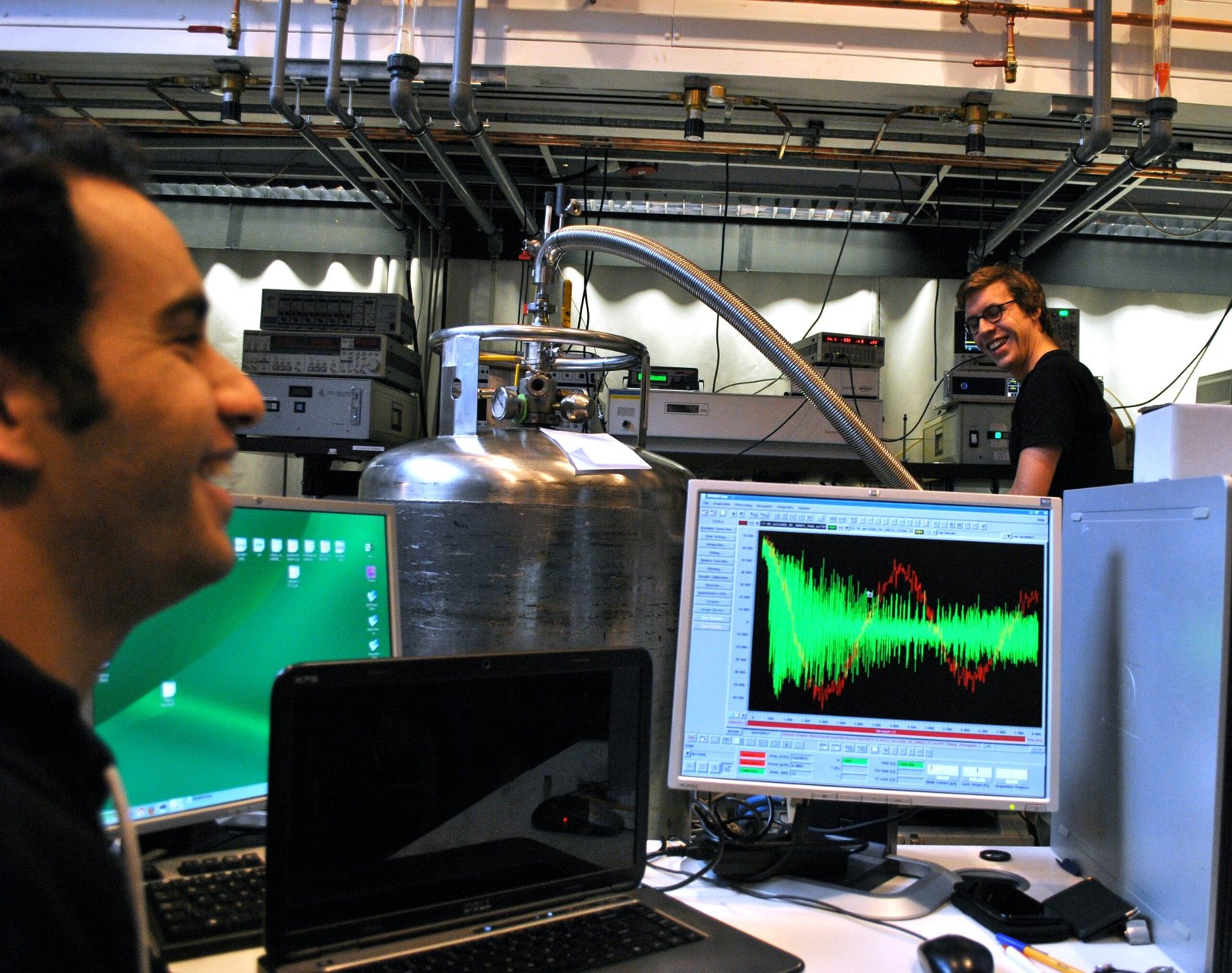In a world where technology evolves at breakneck speed, the concept of quantum computing stands as a beacon of revolutionary potential. At its core, quantum computing is based on the principles of quantum mechanics, a branch of physics that explores the behaviors of particles at the smallest scales. Imagine a world where computers no longer rely on traditional bits, but instead use quantum bits, or qubits, to process information. This leap from classical to quantum computing could redefine the boundaries of what is computationally possible. As we delve into the intricate dance of particles and probabilities, one question looms large: can quantum computers, with their immense power, disrupt the very foundation of the internet as we know it?
The Basics of Quantum Computing
Quantum computing is not just an incremental improvement over classical computing; it’s a paradigm shift. Traditional computers use bits as the smallest unit of data, which exist in a state of either 0 or 1. Quantum computers, however, utilize qubits. A qubit can exist in a superposition, meaning it can be both 0 and 1 simultaneously. This property allows quantum computers to process vast amounts of data at exponentially faster rates than their classical counterparts. To put it simply, imagine trying to find a needle in a haystack. A classical computer would examine each piece of hay one by one, but a quantum computer could examine all the pieces simultaneously. This immense processing power holds the promise of solving complex problems that are currently beyond our reach.
Understanding Quantum Entanglement
One of the most fascinating aspects of quantum computing is the concept of quantum entanglement. This phenomenon occurs when two qubits become interconnected, such that the state of one qubit instantly influences the state of the other, regardless of distance. Albert Einstein famously referred to entanglement as “spooky action at a distance.” In practical terms, entanglement allows quantum computers to perform calculations with a degree of parallelism that classical computers cannot match. If you think of qubits as dancers in a ballet, entanglement ensures they move in perfect harmony, no matter how far apart they are. This synchronized dance is a key factor in the potential power of quantum computing.
The Threat to Encryption

The potential of quantum computers to break current encryption methods is one of the most pressing concerns in the digital world. Encryption is the process that keeps our online data secure, from banking transactions to personal emails. Most encryption systems rely on the difficulty of factoring large numbers, a task that classical computers struggle with. However, a quantum computer could, in theory, solve these problems with unprecedented speed using an algorithm known as Shor’s algorithm. If quantum computers become capable of breaking widely-used encryption protocols, the implications for data privacy and security could be profound. It’s as if the lock that keeps your diary safe suddenly became see-through to anyone with the right key.
Quantum Supremacy and Its Implications

Quantum supremacy is the point at which a quantum computer can perform a calculation that classical computers cannot feasibly achieve. This milestone was reportedly reached by Google’s quantum computer, Sycamore, in 2019. While the task it performed was not practically useful, it demonstrated the potential capabilities of quantum systems. The implications of quantum supremacy extend beyond just speed. It could revolutionize fields such as cryptography, drug discovery, and even climate modeling. However, with great power comes great responsibility, and the ethical considerations of such technology are as significant as its technical challenges.
Quantum-resistant Algorithms

In response to the looming threat of quantum hacking, researchers are developing quantum-resistant algorithms to safeguard data. These algorithms are designed to withstand attacks from quantum computers, ensuring that even if our current encryption methods are compromised, our digital world remains secure. The National Institute of Standards and Technology (NIST) has been working on identifying and standardizing such algorithms. Think of it as upgrading a castle’s defenses in anticipation of a new kind of siege. While these algorithms are still in development, they offer a glimpse of hope in ensuring the longevity of digital security.
The Role of Quantum Key Distribution

Quantum key distribution (QKD) is another promising solution to the encryption challenge posed by quantum computing. Unlike traditional encryption methods, QKD uses the principles of quantum mechanics to securely distribute encryption keys. Any attempt to intercept or eavesdrop on the key would immediately be detectable, as it would disturb the quantum state of the particles involved. This is akin to trying to steal a message written on a soap bubble; any touch would pop it. QKD represents a new frontier in secure communications, offering a potential pathway to protect our digital lives in a quantum future.
Real-world Applications of Quantum Computing

Beyond the realm of cryptography, quantum computing holds the promise of transformative applications across various industries. In healthcare, quantum computers could accelerate drug discovery by simulating molecular interactions with unparalleled precision. In finance, they could optimize complex portfolios in real-time, offering insights that are currently beyond reach. Even in fields like logistics and transportation, quantum algorithms can solve complex optimization problems, improving efficiency and reducing costs. It’s like having a supercharged brain that can juggle more tasks than ever before, reshaping industries in ways we can only begin to imagine.
The Ethical Considerations of Quantum Computing
As with any powerful technology, quantum computing raises important ethical questions. Who will have access to this technology, and how will it be used? The potential to disrupt current systems poses a risk of exacerbating inequalities, as those with access to quantum computing could gain a significant advantage. Furthermore, the ability to break encryption could threaten personal privacy and national security. It’s essential to navigate these ethical waters with care, ensuring that the benefits of quantum computing are shared equitably and responsibly.
The Future Landscape of Quantum Computing
The journey of quantum computing is just beginning, and the road ahead is filled with both challenges and opportunities. As researchers continue to push the boundaries of what is possible, the development of practical quantum computers remains a complex and demanding task. However, the potential rewards are immense, promising to revolutionize industries and solve problems that currently elude us. As we stand on the cusp of this new era, it’s crucial for governments, businesses, and individuals to stay informed and prepared for the changes that quantum computing will bring.
The Call to Action

As we ponder the future of quantum computing, it’s clear that this technology has the potential to reshape our world in profound ways. The questions it poses about security, ethics, and the very nature of computation are both exciting and daunting. It’s up to all of us—scientists, policymakers, and citizens alike—to engage with these questions and guide the development of quantum computing in a direction that benefits society as a whole. The journey may be complex, but with curiosity and collaboration, we can navigate the unknown and unlock the secrets of the quantum realm.




